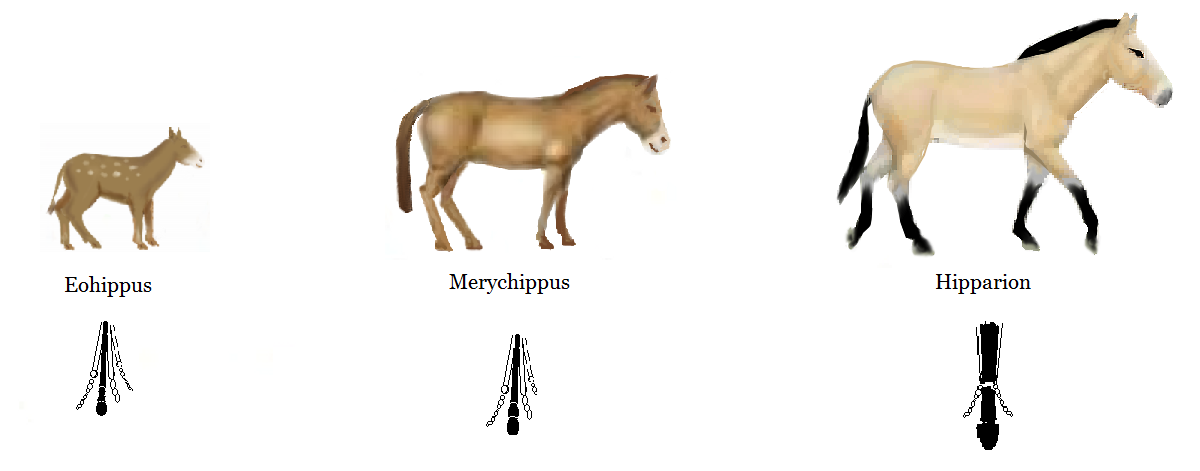Evolution or Divine intervention

It seems the problem a lot of people have with evolution is that they wonder why humans are the only animal that can use logic and reason to the extent that we do. Why we think about the world in probably a very different way than other life on earth.
There are three main features of mankind that have been said to be the reason we developed faster and farther than our animal cousins. The first is the opposable thumb. Because we have them we can grab things and manipulate things in more ways than others can. We also have an interesting feature on our hands: fingerprints.
These two features make our hands perfect for manipulating both large and small objects in ways other animals just can’t. But it takes more than fingers with thumbs.
The second feature is brain power. We have bigger, more complex brains than most animals, so we have the brain power to use our hands to our best advantage.
The third thing, and arguably the most important advantage we have is speech. We have a voice box that can handle language. How did we get all these amazing feature when other animals didn’t? Did a god intervene in our evolution and give us these great advantages?
Some have even suggested that the passages in the bible about the sons of god coming to earth to mate with the daughters of man could be a story handed down long ago about aliens who implanted their own DNA in our ape body, or altered us in some way to make us what we are.
But then, how did the aliens get so smart? Someone tamper with them? It’s more likely we just evolved this way ourselves, and I’ll explain why.
First let me explain a little about our evolution. Our ancestors farthest back in time would have been, not primates, but single cells. It wasn’t until later, when oxygen started to form on earth that multi celled creatures flourished. More oxygen made bigger animals possible.
No one knows what paths we took along the way. But there are some interesting things of note about our brains. Our brains are actually made up of three separate types of brain. You might say our brains are kind of a trinity. It is called the triune brain.
Brain one is at the center. It is called the "R complex". This is the brain snakes and lizards and other reptiles still have today.
Brain two is wrapped around Brain One. It is called the "limbic system" or the "old mammalian brain" Dogs and cats still have this type of brain.
Brain three is the outside Surface wrapped around Brain Two. It is called the "neocortex" Primates and humans are the only animals that have this feature.
So this suggests that we have ancestors that were reptiles which then evolved into mammals. After that, the ancestors that later became primates and us added onto that early mammal brain.
It is also hard to say where we branched off from other primates. But what seems clear is that for a long time we were evolving along the same lines. It is very clear that we did not evolve from apes. That should make a few people happy for a second.
But the bad news for those people is that we are in fact a species of ape. And we have one special quality other apes do not have. We a great voice box that can make a wide range of sounds.
So while we did evolve in parallel with other apes, we broke away at some point. Exactly where is unclear. We are not the only animals that have a great voice box. : We all know parrots , parakeets, and myna birds can reproduce human speech. But it turns out a lot of birds can. The list includes Jays, ravens, magpies, rooks, jackdaws and even crows.
Speech is important to human evolution. Every person has an inner dialogue going on all the time, and it is going on in language, not just feeling. This inner dialogue is how we think. How we consider things, ideas, problems. Speech makes it possible for us to explain things to ourselves. To categorize and create complex concepts. To weigh consequences. Imagine if you didn’t have an inner dialogue that included speech?
Words are concepts. Concepts are often full of different related ideas. Without that dialogue, our heads would be, at times, a little quieter. But we would be running on pure emotion and some kind of inner symbolism. A raw instinct about the world. We certainly wouldn’t be able to set up a meeting to design and build a new sky scraper.
So somewhere along the line we acquired a better voice box than other apes. We likely got it from the same place all these birds did. Does that mean we were once birds? Of course not. But it means probably when we separated from the reptiles, our reptile species of what was to become ape, shared an ancestor with what became the birds of today. Perhaps all “what become primates” did as well, but the trait for a more complex voice box was dominated by their current pattern, or didn’t transfer to them but did to us through a particular ancestor in which the mutation was dominant.
It is commonly thought now that birds are definitely evolved from reptilian ancestors. Dinosaurs to be exact. Many dinosaurs had hollow bones like the birds of today, and small transitionary feathered dinos (that could not fly) have been found in China in recent years.
Other apes and primates did not get that voice box. As I say, that may mean we were already on a separate but close evolutionary path even back then. But studies have shown that a lot of our closest primates can and do act with logic, reason, and cognitive skill. And of course they would, having our type of brain. Birds do not have the brainpower to use human language even though they have the vocal capacity. So it will do them little good to speak our language. They can’t learn what it all means. But primates, on the hand, can learn language. Studies have shown they can use sign language effectively, if taught.
Are opposable thumbs really unique? Well no, they are not. Many primates have opposable thumbs. polydactyl cats have opposable thumbs. Cats are, by the way, our next closest relative after primates, according to genetics. Giant Pandas have opposable thumbs and so does a particular species of African rat. An interesting mix.
What about finger prints? Surely they are unique to humans? Not quite. Gorillas have them and so do a lot of primates. But some like the chimpanzee do not. But what is most amazing to me, is that koala bears have them, and they closely resemble ours in shape size and pattern.
We have two choices. Finger prints evolved separately in humans and koala bears, or together, long before there were either humans or koala bears.
It seems to me humans did get a lot of breaks along the way. But does it mean only alien or divine intervention could have produced us? It doesn’t look that way to me. It looks like all the qualities we have already existed before we developed. It just so happens we got the best of most worlds.
That doesn’t mean it was all random chance. The world is based on cause and effect. In such a world nothing is accident. But at the same time, process does not have intent.
Well not exactly. But any process has results. Specific results. So the process of existence is deliberate in that sense.
Chaos theory shows that the simplest acts can become complex chains of cause and effect very quickly. I talk about this in depth in another hub. The gist of it all is that chaos breeds order, and creativity is due to conflict and conflict resolution.
In other words, I show that yes, the simple does tend to toward the complex in the micro world, and yes that does spill over into the macro world. http://hubpages.com/hub/Can-a-natrual-process-be-creative-enough-to-create-mankind
So along with the fact that all our special traits pre-exist us, and the concept of complexity from simplicity, there is no reason for divine intervention. Nature seems to have been capable of doing it on its own.
But how does our consciousness fit in? Where did that come from? I’ll leave that for another hub.
Here are other related hubs: http://hubpages.com/hub/No-Such-Thing-As-A-Selfless-Act









